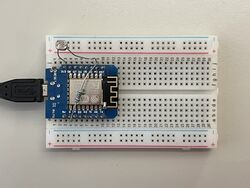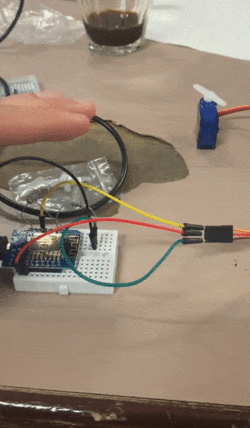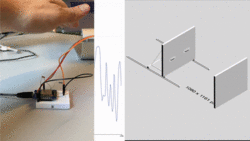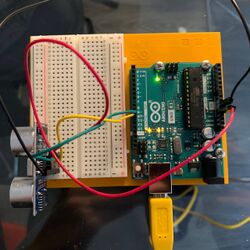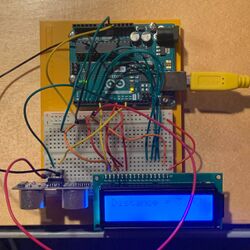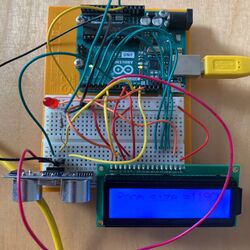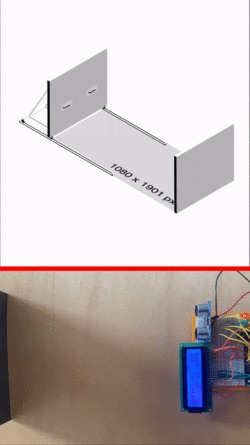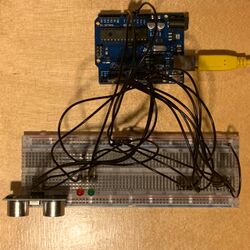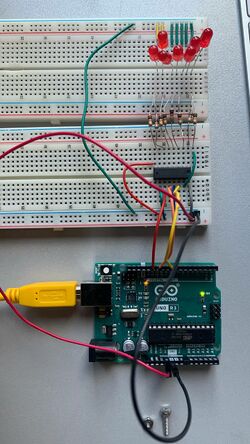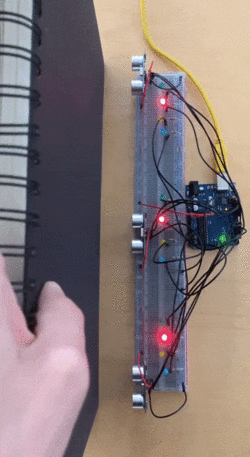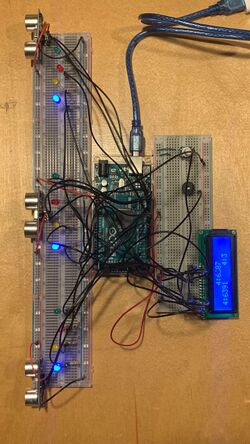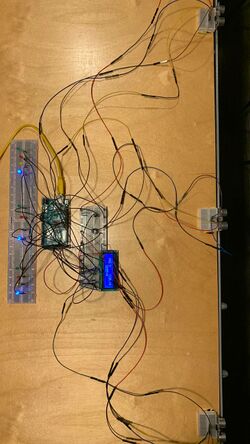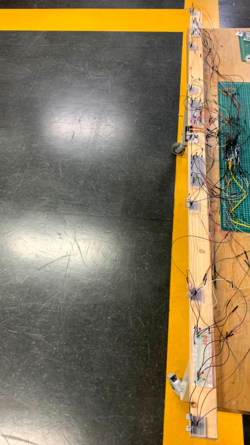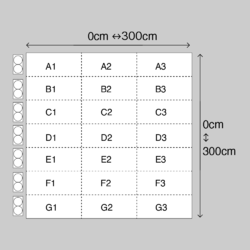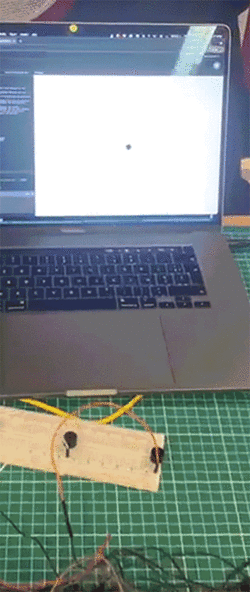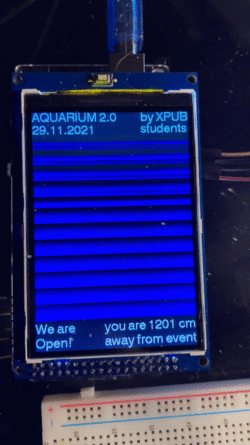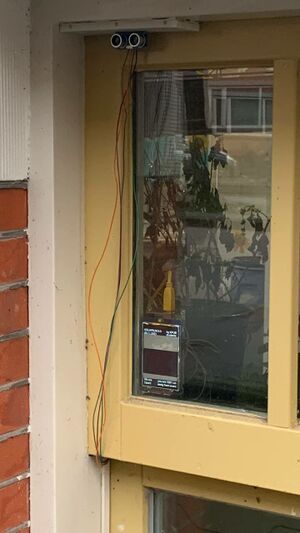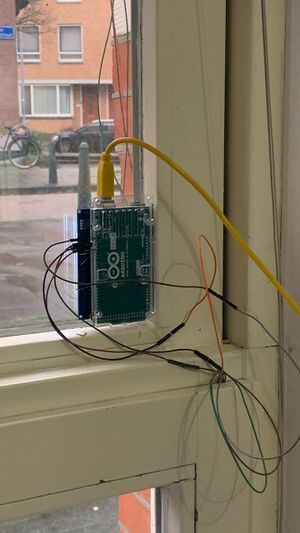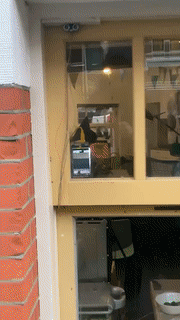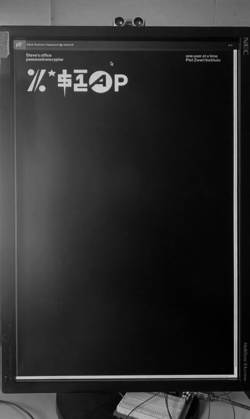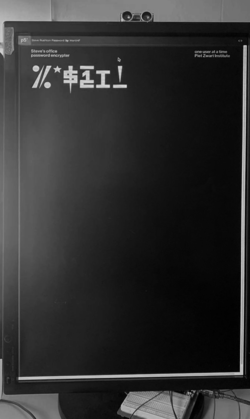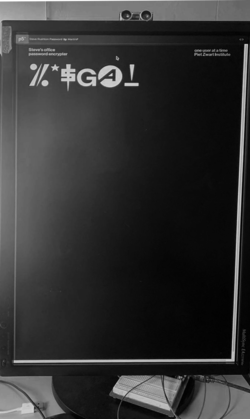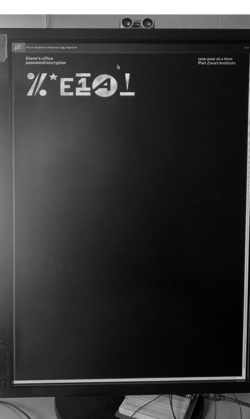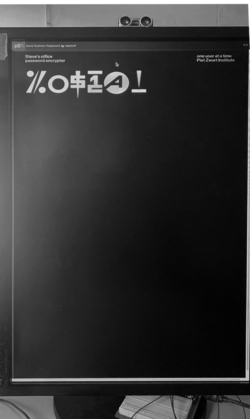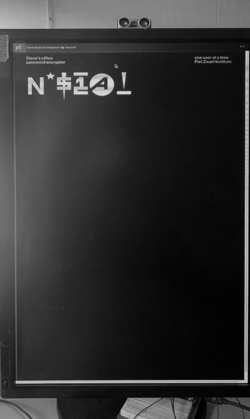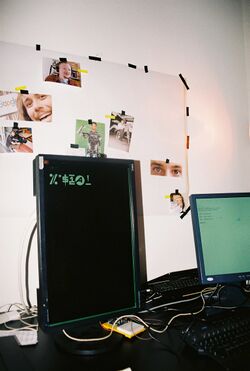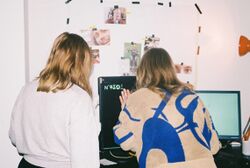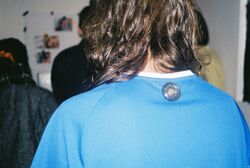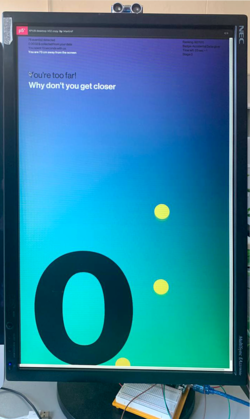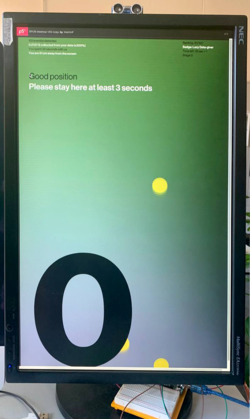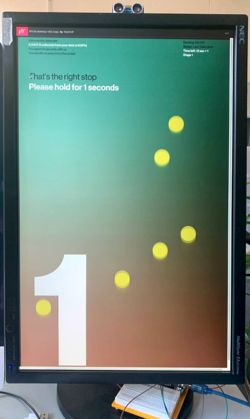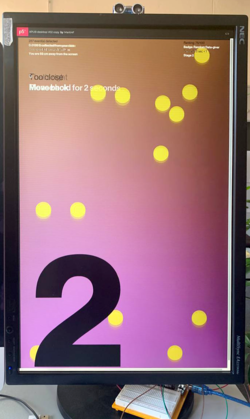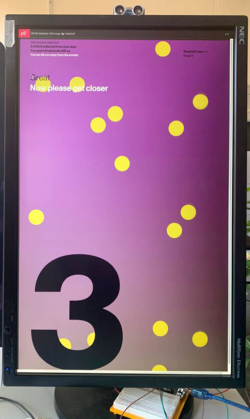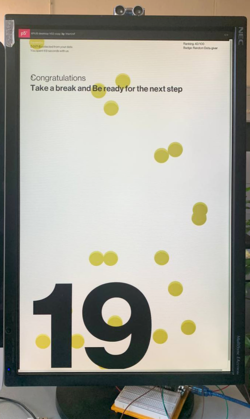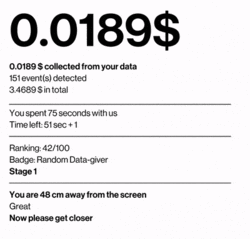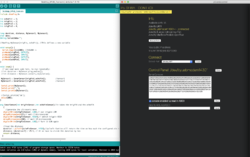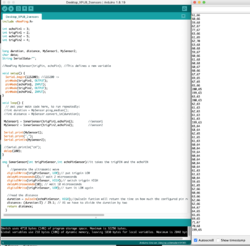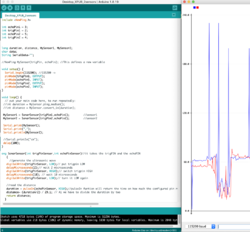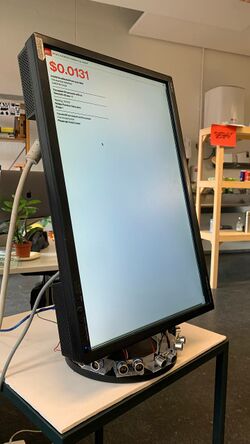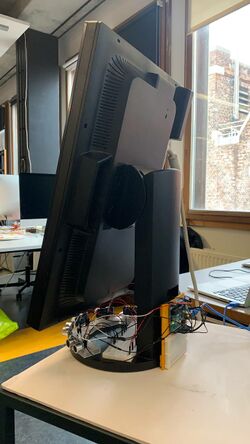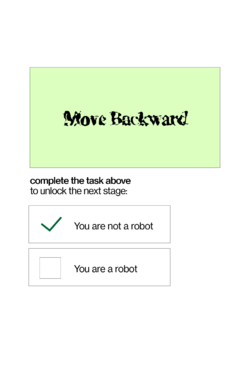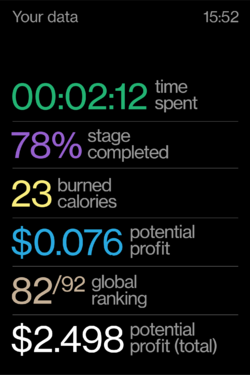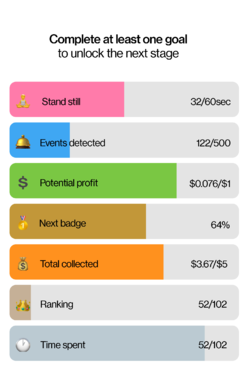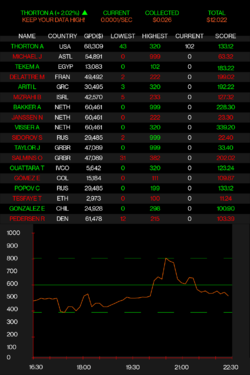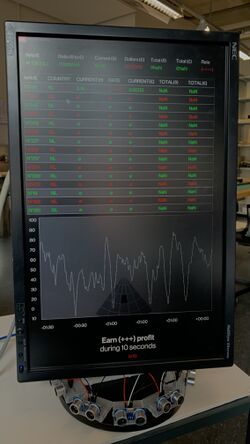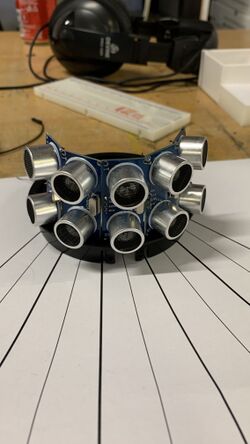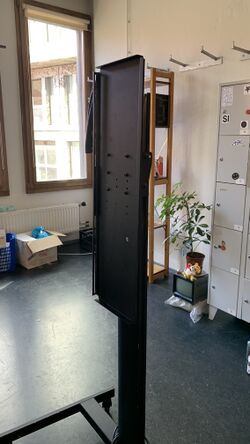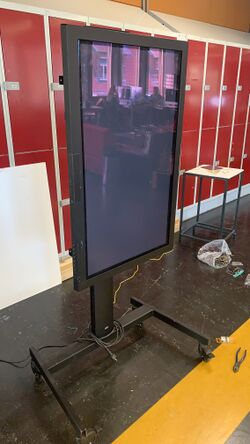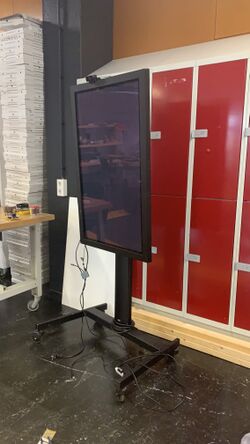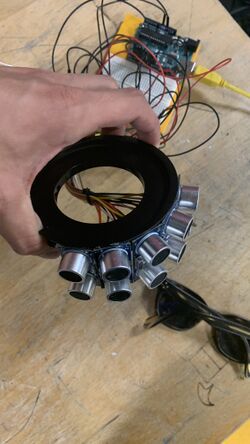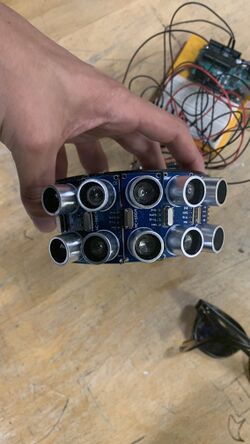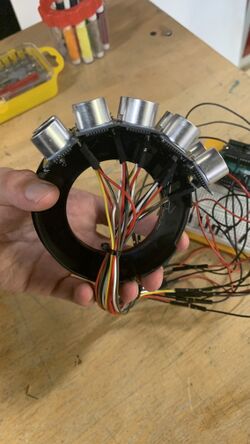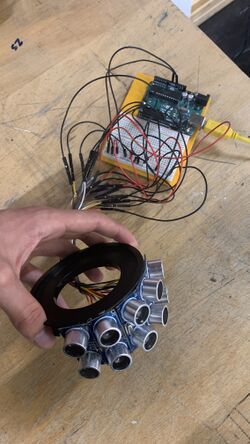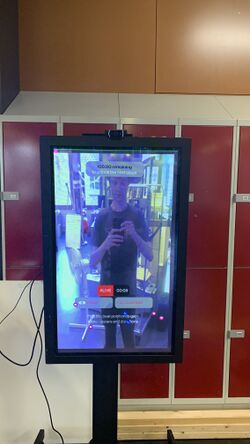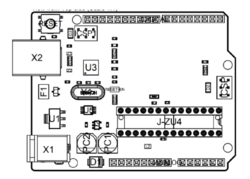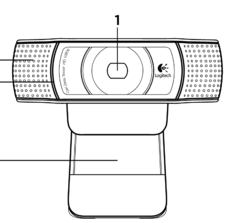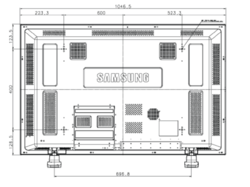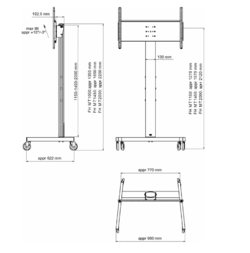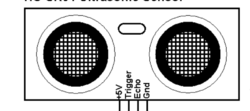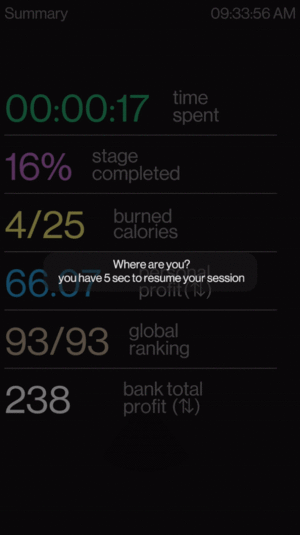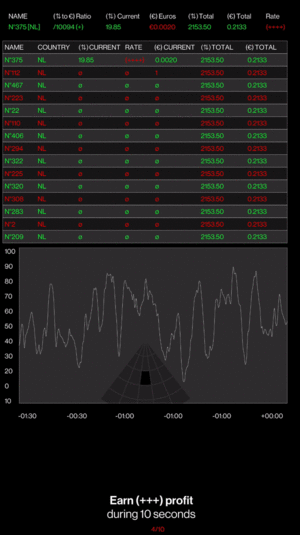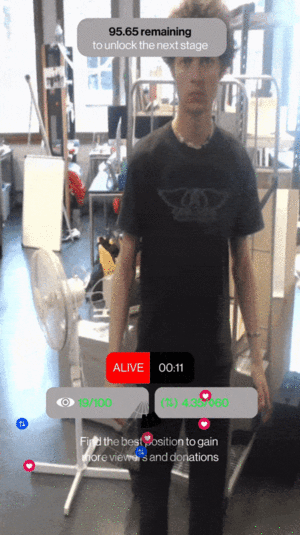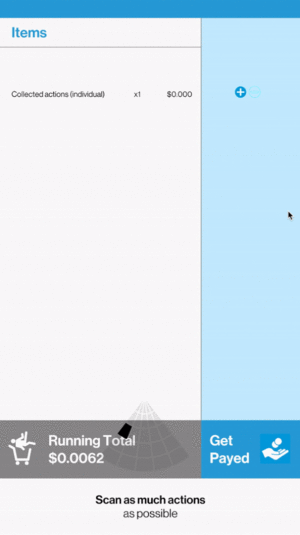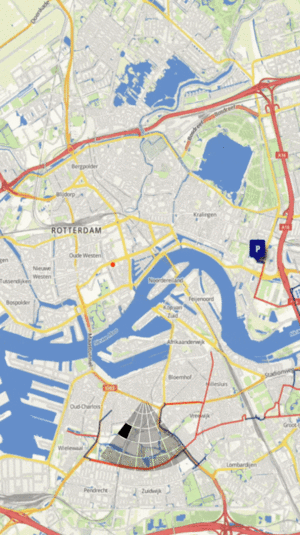User:Martin/Final presentation: Difference between revisions
| Line 18: | Line 18: | ||
===Best of readings=== | ===Best of readings=== | ||
<br> | <br> | ||
→ <b>Crawford, K., Lingel, J., Karppi, T., (2015). Our metrics, ourselves: A hundred years of self-tracking from the weight scale to the wrist wearable device</b><br> | |||
* Questions the ethic of wearable self-tracking devices | |||
*Debord, G., (197). The Society of the Spectacle<br> | * "commodification and knowledge-making that occurs between data and bodies." | ||
*Foucault, M., (1982). Technologies of the Self. [online] Available at: https://www.foucault.info/documents/foucault.technologiesOfSelf.en/ [Accessed March 29 2022].<br> | <br> | ||
*Foucault, M., (1977). Discipline and Punish: The Birth of the Prison<br> | → <b>Debord, G., (197). The Society of the Spectacle</b><br> | ||
*Fritsch, K., (2018). Towards an emancipatory understanding of widespread datafication [online] Available at: https://medium.com/ [Accessed March 11 2022].<br> | * Post-War consumerism leaded to a "Celebrity Culture", "Society of the spectacle" or society of self-performance. | ||
*Kholeif, O., (2018). Goodbye, World! — Looking at Art in the Digital Age<br> | <br> | ||
*Morozov, E., (2019). Capitalism's New Clothes. The Baffler [e-journal] Available through: https://thebaffler.com [Accessed March 11 2022].<br> | → <b>Foucault, M., (1982). Technologies of the Self. [online] Available at: https://www.foucault.info/documents/foucault.technologiesOfSelf.en/ [Accessed March 29 2022].</b><br> | ||
* Form of power that is not necessarily only applied from one subject to another subject but also by the subject toward himself. | |||
*Wu, T., (2016). The Attention Merchants: The Epic Scramble to Get Inside Our Heads. Available at: https://www.theatlantic.com/magazine/archive/2018/10/yuval-noah-harari-technology-tyranny/568330/<br> | <br> | ||
*Zuboff, S., (2019). The age of surveillance capitalism<br> | → <b>Foucault, M., (1977). Discipline and Punish: The Birth of the Prison</b><br> | ||
* The panopticon metaphor | |||
<br> | |||
→ <b>Fritsch, K., (2018). Towards an emancipatory understanding of widespread datafication [online] Available at: https://medium.com/ [Accessed March 11 2022].</b><br> | |||
* Dismantle the technological mysticism of these systems and propose artistic works that speak to everyone. | |||
<br> | |||
→ <b>Kholeif, O., (2018). Goodbye, World! — Looking at Art in the Digital Age</b><br> | |||
* Data diary | |||
* Normalizarion of data centered marketing strategies/advertisments / Aesthetization of data | |||
<br> | |||
→ <b>Morozov, E., (2019). Capitalism's New Clothes. The Baffler [e-journal] Available through: https://thebaffler.com [Accessed March 11 2022]</b><br> | |||
* Critic of Zuboff, S., (2019). The age of surveillance capitalism | |||
* It is possible to imagine and build a society with the Internet without this logic of surveillance | |||
<br> | |||
→ <b>Seymour, R., (2019). The Twittering Machine</b><br> | |||
* When interacting, we are collectively writing to the machines | |||
* Social media platforms as "rigged lottery systems" where a post is a gamble | |||
* Why do we persist using tools and platforms that exploit us | |||
<br> | |||
→ <b>Wu, T., (2016). The Attention Merchants: The Epic Scramble to Get Inside Our Heads. Available at: https://www.theatlantic.com/magazine/archive/2018/10/yuval-noah-harari-technology-tyranny/568330/</b><br> | |||
* The rise of the attention economy of the Web | |||
<br> | |||
→ <b>Zuboff, S., (2019). The age of surveillance capitalism</b><br> | |||
* Introduce the term surveillance capitalism, which differs from governmental surveillance | |||
* Desillusions on the future of the Internet | |||
<br> | <br> | ||
Revision as of 10:09, 11 June 2022
W.I.P
This page is under construction, please stand by and visit https://project.xpub.nl/Count-On-Me/or the graduation board
Thank you
Special Issues Contributions
Reading Practice
Best of readings
→ Crawford, K., Lingel, J., Karppi, T., (2015). Our metrics, ourselves: A hundred years of self-tracking from the weight scale to the wrist wearable device
- Questions the ethic of wearable self-tracking devices
- "commodification and knowledge-making that occurs between data and bodies."
→ Debord, G., (197). The Society of the Spectacle
- Post-War consumerism leaded to a "Celebrity Culture", "Society of the spectacle" or society of self-performance.
→ Foucault, M., (1982). Technologies of the Self. [online] Available at: https://www.foucault.info/documents/foucault.technologiesOfSelf.en/ [Accessed March 29 2022].
- Form of power that is not necessarily only applied from one subject to another subject but also by the subject toward himself.
→ Foucault, M., (1977). Discipline and Punish: The Birth of the Prison
- The panopticon metaphor
→ Fritsch, K., (2018). Towards an emancipatory understanding of widespread datafication [online] Available at: https://medium.com/ [Accessed March 11 2022].
- Dismantle the technological mysticism of these systems and propose artistic works that speak to everyone.
→ Kholeif, O., (2018). Goodbye, World! — Looking at Art in the Digital Age
- Data diary
- Normalizarion of data centered marketing strategies/advertisments / Aesthetization of data
→ Morozov, E., (2019). Capitalism's New Clothes. The Baffler [e-journal] Available through: https://thebaffler.com [Accessed March 11 2022]
- Critic of Zuboff, S., (2019). The age of surveillance capitalism
- It is possible to imagine and build a society with the Internet without this logic of surveillance
→ Seymour, R., (2019). The Twittering Machine
- When interacting, we are collectively writing to the machines
- Social media platforms as "rigged lottery systems" where a post is a gamble
- Why do we persist using tools and platforms that exploit us
→ Wu, T., (2016). The Attention Merchants: The Epic Scramble to Get Inside Our Heads. Available at: https://www.theatlantic.com/magazine/archive/2018/10/yuval-noah-harari-technology-tyranny/568330/
- The rise of the attention economy of the Web
→ Zuboff, S., (2019). The age of surveillance capitalism
- Introduce the term surveillance capitalism, which differs from governmental surveillance
- Desillusions on the future of the Internet
Prototyping Practice
October 2021
- In October 2021, I started using Arduino for the first time, during a workshop with Dennis de Bel. During a workshop, we started with a very basic unoficial arduino kit, a led, a motor, and a sensor. After making a few connections, we got to understand a bit how it works. It was from that point that I started getting more and more familiar with Arduino and work with ultrasonic sensors.
November 2021
- During the month of November, I started working with multiple sensors at the same time in order to map the position of an obstacle on a wider detection range.
December 2021
- In December, after being a lot more confortable with Arduino, I investigated the possibilty to transmit the values detected by the sensors and Arduino to P5.js, by making a serial communication (with P5.serialcontrol). By doing so, I could gain more freedom in terms of visual/sound feedbacks. However, the serial communication between Arduino and P5.js was in stand by for a very long time, because I didn't know (yet) how to send the values of more than one sensor.
- During the Window exhibition at Buitenboel, I created micro-installation composed of a LCD screen and sensor(s) inviting users/visitors to change the color of the screen and displayed messages by getting closer from the window.
February 2022
- In February, we created a small hybrid reality quest with Louisa. For this occasion, I created a mini-game with a sensor setup, allowing players to unlock a secret password by taking the good positions in space.
March 2022
- In March 2022, I started designing differents stages/steps for the installation. The installation requires once again the player to hold on on specific position in order to unlock new stages.
April 2022
- In April, I started designing the final interfaces for my installation. The idea was to refer to the differents contexts of surveillance and self-surveillance evoked in my thesis.
- Luckily, Joseph explained to me how to make the serial communication between Arduino and P5.Js with more than one sensor value, by splitting the data in many parts.
May 2022
- In May, I started considering to transiting from a small to a bigger screen for the grad show. I also updated the position of the different sensors.
June 2002
(insert description)
Thesis: Hidden in plain sight
Hidden in plain sight:
Understanding our consent and distrust in the context of capitalist techno-surveillance
1 → Homo Data
(insert description)
2 → Addiction machines
(insert description)
3 → Self-empowerment
(insert description)
4 → Agree and continue?
(insert description)
Graduation Work: Count On Me
Count On Me
"Count On Me" is an interactive data collector that rewards your attention span and responsiveness in crypto-currency.
In order to maximize profits, you will need to accurately position yourself in the space and pay attention to the instructions. Each micro-task performed allows the visitor to get extra payouts and unlock different stages ranging from stock ticker interfaces, wellness applications, gambling games, captchas, streaming platforms, self-checkouts, eg. Once ready to leave, the visitor can convert its crypto-earnings into euros by refering to a randomly assigned conversion rate.

